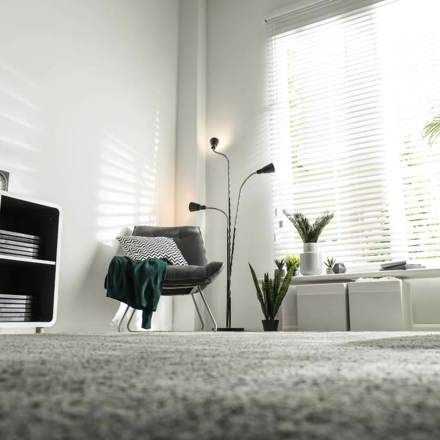Carpet cleaning is a common point of debate at the end of a tenancy, often leading to confusion about who should cover the cost. Both tenants and landlords may have different expectations, and understanding where responsibilities lie can help prevent unnecessary disputes. In New Zealand, the Residential Tenancies Act outlines standards for cleanliness and condition, but what about specifics like carpet cleaning?
Whether a landlord can charge a tenant for this service depends on the carpet’s condition, its use over time, and whether any damage exceeds "normal wear and tear." This guide clarifies tenant and landlord rights and responsibilities, explaining what’s considered fair under the law, how to handle disagreements, and best practices to keep things smooth and conflict-free.
1. Tenant Responsibilities for Carpet Cleaning
Under the Residential Tenancies Act, tenants are expected to leave the property in a "reasonably clean and tidy condition" at the end of their tenancy. This standard does not require professional carpet cleaning unless the carpet has been damaged beyond typical wear and tear.
-
Normal Wear and Tear: Minor issues like light dirt accumulation or slight thinning of the carpet are normal. Landlords cannot charge tenants for cleaning related to wear and tear that naturally occurs over time.
-
Damage Beyond Wear and Tear: Landlords may charge tenants for cleaning if the carpet has significant stains, burns, or other damage beyond what’s considered normal. This expense can be deducted from the tenant’s bond if necessary.
2. How to Handle Disputes Over Carpet Cleaning Costs
Disagreements over cleaning charges? The Tenancy Tribunal can help. This tribunal considers factors like the carpet's condition at the start and end of the tenancy and lease agreement clauses. To strengthen your case:
- Document the property’s condition at move-in and move-out with photos.
- Ensure any changes in carpet condition are clearly noted.
- For further support, you can turn to the Tenancy Tribunal.
3. Tips for Tenants and Landlords to Avoid Conflicts
For Tenants:
- Regular maintenance, immediate cleaning of spills, and taking preventive measures can help.
- If you own pets or anticipate higher-than-average carpet wear, consider arranging a professional clean at the end of your tenancy to minimize disputes.
For Landlords:
- Set clear expectations in the tenancy agreement about cleaning responsibilities.
- Providing tenants with a checklist and documenting the carpet’s initial condition can help avoid misunderstandings.
Key Takeaways
In most cases, landlords cannot charge tenants for carpet cleaning due to normal wear and tear. However, excessive dirt, stains, or damage beyond typical use may be grounds for reasonable cleaning fees.
Checklist to Avoid Issues:
- Review Lease Terms: Clarify carpet cleaning expectations.
- Document Condition: Take photos at move-in and move-out.
- Stay Informed: Understand what counts as normal wear versus damage.
By knowing your rights and responsibilities, both tenants and landlords can handle carpet cleaning costs fairly and avoid conflicts.
For more information, visit the Oxygen Blog on Landlord Carpet Cleaning.




